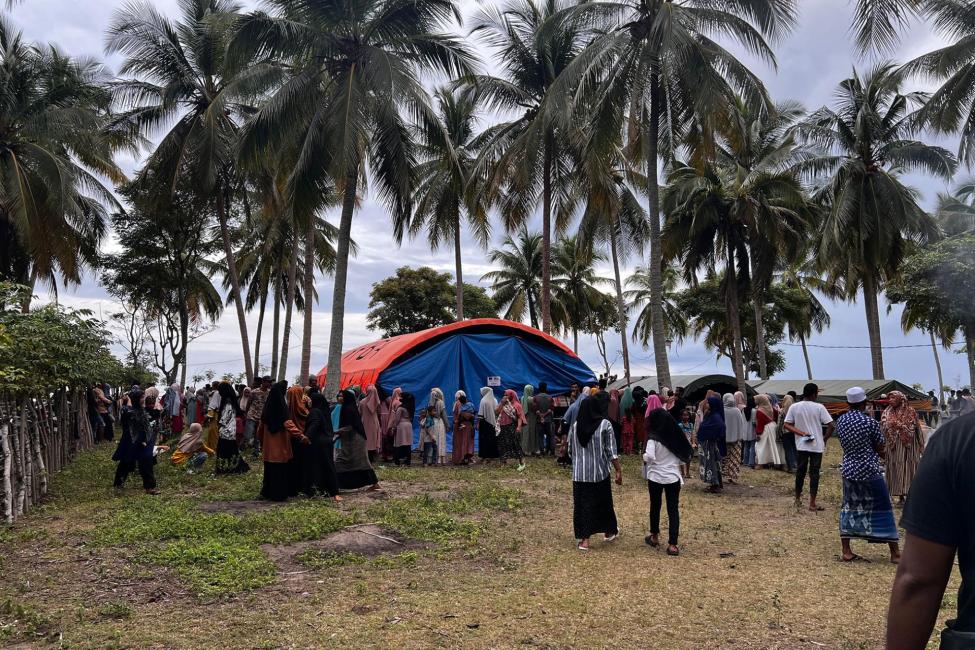-
Who we are
WHO WE AREThe International Organization for Migration (IOM) is part of the United Nations System as the leading inter-governmental organization promoting since 1951 humane and orderly migration for the benefit of all, with 175 member states and a presence in over 100 countries. IOM joined the United Nations system in September 2016.
About
About
IOM Global
IOM Global
-
Our Work
Our WorkAs the leading inter-governmental organization promoting humane and orderly migration, IOM plays a key role to support the achievement of the 2030 Agenda through different areas of intervention that connect both humanitarian assistance and sustainable development.
Cross-cutting (Global)
Cross-cutting (Global)
- Data and Resources
- Take Action
- 2030 Agenda
Youth Voices Central in Shaping the Future of Human Mobility: IOM DG-Elect
Geneva/Kigali – The International Organization for Migration’s (IOM) Director General-Elect Amy Pope has called for increased and active participation of youth in migration discourse at a three-day (28 – 30 August) Inaugural African Migration and Youth Consultation.
“It is important that solutions to African youth problems are youth-led,” Pope said. “Their ingenuity could drive legal pathways, including regional integration within the continent and circular migration to harness the positive dividend of human mobility in and out the continent.”
The event organized by IOM’s Special Liaison Office to the African Union, the African Union Commission (AUC) and UNECA (SLO), brought together youth representatives from across the continent to discuss and develop a common position to drive the migration and youth agenda in Africa.
Africa currently has the fastest growing youth population with over 400 million people aged between 15 and 35. Their vision for the continent is reshaping positively the geopolitical and economic dynamics.
The consultations covered youth participation in climate change discussions, regional and continental integration, labour, diaspora engagement, health, and progress towards the Global Compact for Migration (GCM) which culminated in the adoption of the African Youth Migration Declaration as a commitment to move the migration agenda in the continent forward.
The Declaration calls on Member States to establish comprehensive initiatives that increase skills and knowledge transfer and engage diaspora to equip young people with the tools they need to make meaningful contributions to the development of their countries and to confidently navigate legal migration pathways.
To spearhead this agenda, the first cohort of African Youth Migration Ambassadors - Rose Kobusinge of Uganda, Damilola Adeniran of Nigeria, Sarah Hashem Badr of Egypt, Walter Kasempa of Zambia, and Bobuin Valery Oben of Cameroon – were presented.
“For IOM, it is crucial, and evident, that youth should have access, and contribute to such important policy discussions on migration as they have significant impact on their lives, livelihoods, and futures,” Pope said.
Improving cross-border movements for young people emerged as a priority, with participants calling for the reduction of barriers to mobility in Africa to allow them to explore opportunities and deploy their potential across borders without difficulty.
“The African Migration Ambassadorial programme is designed to consider youths’ critical role in advocating and participating in decision making, considering the Global Compact for Migration identifies youth among key stakeholders, through a people-centered, human rights based and whole-of-society approach,” said Aissata Kane, Senior Regional Adviser for Sub-Saharan Africa for IOM.
This comes following the Kampala Ministerial Declaration on Climate Change in which the youth were instrumental in its development and the efforts to expand this continentally. The mandates of the new ambassadors will be guided by the agreed Declaration and coordinated by the African Union, youth MPs from around Africa, and IOM SLO, to track progress in implementation across national, regional, continental, and global levels.
For more information please contact:
Eric Mazango, emazango@iom.int
Innocent Vuga, ivuga@iom.int

